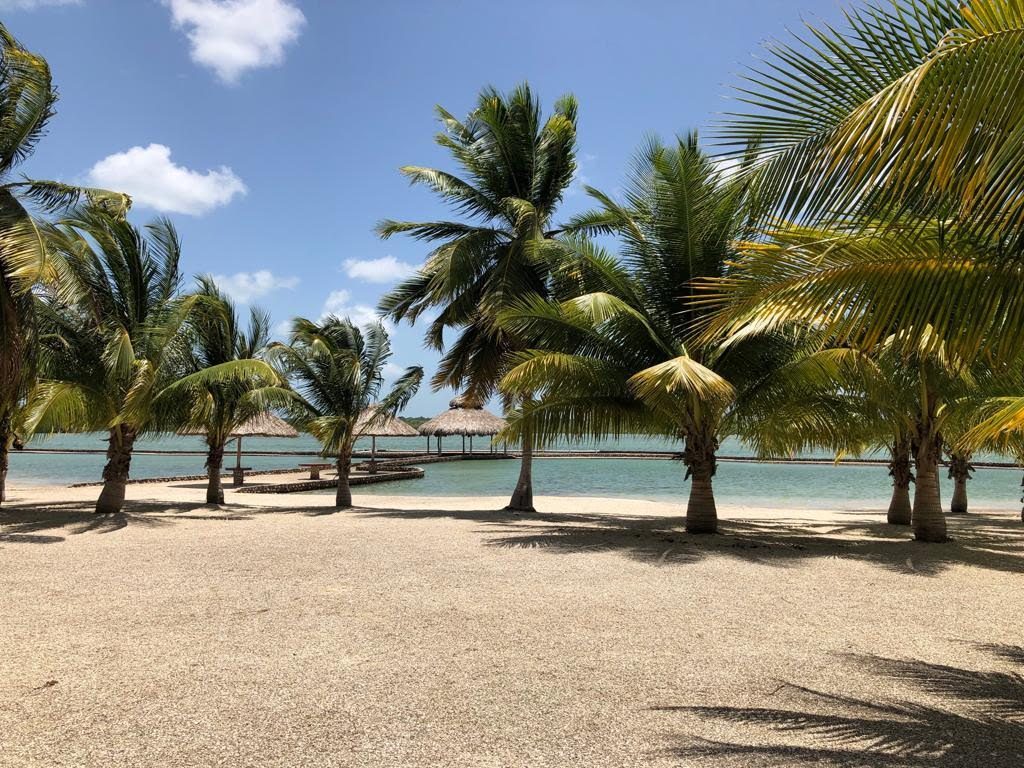
February 22 – 26, 2020
Copper Bank
Belize (Central America)
Build Yourself. Build Your World.
Did you ever want to build your own home – but did not know where to start, or not even think it was possible? In this hands-on workshop – we show you how to do it – from the dirt beneath your feet – using our open source Compressed Earth Block (CEB) press. Here is your chance – as a voluntourism and edutourism opportunity in Belize, Central America. We are using our open source Compressed Earth Block press to do an Extreme Build of a 144 square foot CEB Microhouse – in 5 days.
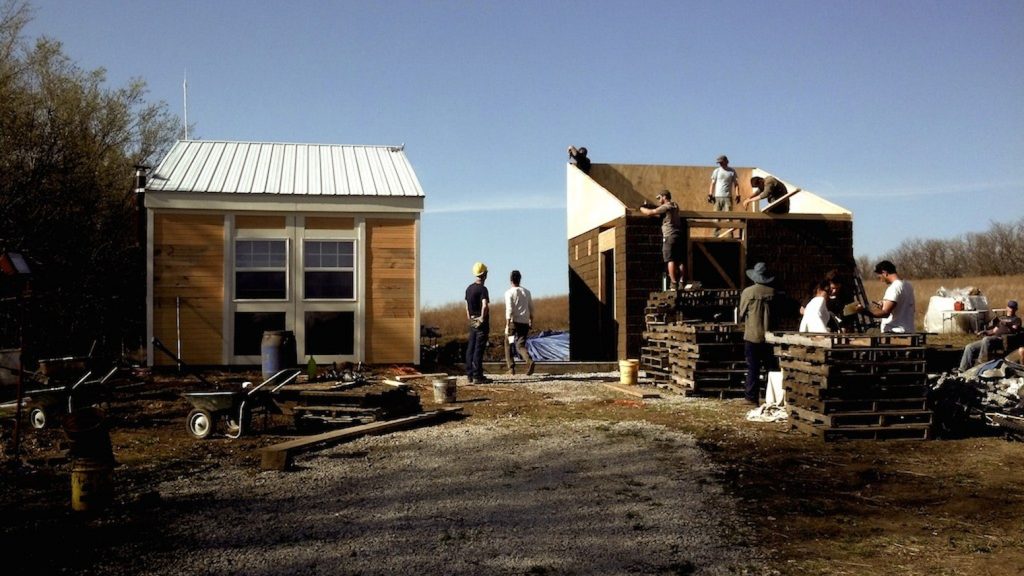
Open Source Ecology (OSE) is doing the first ever house build outside of the USA. We have done a number of builds at our headquarters in Missouri, and we are taking an opportunity to do a service project abroad. One of our collaborators from Belize has built the OSE CEB press – and we decided to build a house for a community member in need in Copper Bank – a fisherman’s village in northern Belize. This is a unique opportunity to learn about appropriate technology, to expand your horizons in a different culture, to eat local food, to learn about ecological construction – and to contribute to a worthwhile effort. Residents from Copper Bank are invited to the build – and together with the international community that descends onto Copper Bank – we are all in it together for an immersion experience in CEB construction.
Collaborative Build of the CEED Eco-Home
Open Source Ecology is about collaborative design for a transparent and inclusive economy of abundance. This event builds upon the open source work of OSE – and in particular the open source CEB Press. The house itself will be built along the style of an expandable seed eco-home – like the Seed Eco-Home in Missouri – but made from CEBs – and much smaller – 144 square feet as opposed to 1400 square feet. We call this the CEED Eco-Home (spoken as ‘seed eco-home’) in the CEB version. CEED is short for the Compressed Earth Environmental Dwelling – to emphasize the local, natural building material – earth – from which the house is built. The ‘Seed’ concept also refers to incremental housing – building a small home, and expanding as needs grow. The design of the house lends itself to building additions.
Why Earth?
We have chosen to build with earth – and specifically – CEB – because of its overwhelming advantages. Listen to the overview Jim Hallock, collaborator and leading CEB builder in North America – emphasizing the case for CEBs:
It is no wonder that the Smithsonian Institution predicts that in the next 40 years, sophisticated buildings will be made out of mud.
Together with lumber sourced from local Mennennite mills, the embodied energy of this CEED Eco-Home will be kept to a minimum.
By applying seismic reinforcement in this build using the basket technique (see video here) – the structure is expected to last for hundreds of years. Just like Mayan temples – we will use lime stabilization for the CEBs.
A Small House in 5 Days
To build a house in 5 days requires a tight and well-planned build. We are known for our Extreme Build techniques – we design and build modular structures such that many people can work on different modules in parallel – and then assemble them rapidly into place.
Build Process
When we begin, the foundation is already in place. It’s time to position the CEB press in place…and we can begin pressing and laying bricks. How do we lay block rapidly with one of more dozen inexperienced people? We first frame up the door and window openings, and use them to attach backing boards – so that the block is laid right up to the backing board. This way, the walls are straight. We found that leveling string does not work with so many people. The bricks are made from the soil right from the build site. We compress soil using our CEB press to make strong block. We add 5% of lime or cement to stabilize the block – so that the block is waterproof. We prepare 55 gallon drums of slurry – essentially a watered down slurry made from the same materials as the blocks themselves – which serves as the mortar between the courses. We also add seismic reinforcement as discussed in the video above.
On Day 1, we frame up the windows and doors. Day 1 and 2 we continue laying until the concrete bond beam is poured on the top course. At the same time, another team can build the roof modules, so they can be assembled readily into place at the end of day 2. On day 3, we lay the floors – made of CEBs. On day 4, we attach the seismic reinforcement and apply plaster. During any of these days, another team makes the Modular Utility Panel for water and electric. On day 5, we build the patio kitchen, and install a modular utility panel for water and electric.
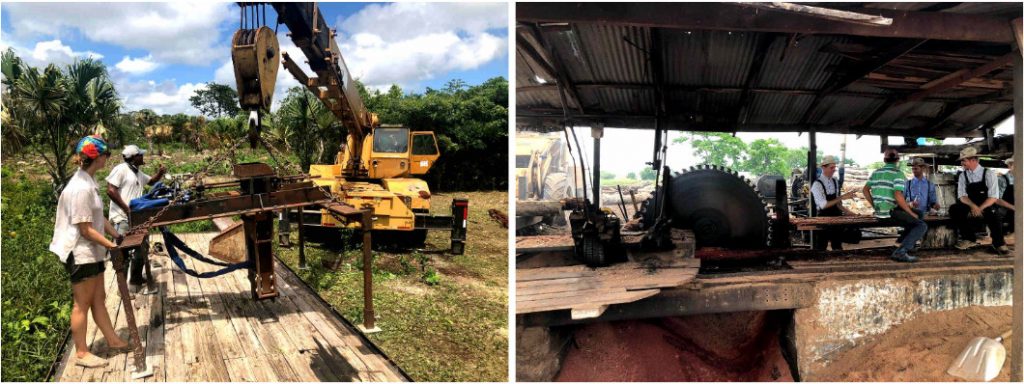
The goal is for participants to gain familiarity with the overall build process of an entire house, from foundation to roof and utilities.
- How to build with CEBs.
- How to use a CEB press to make CEBs
- How to prepare slurry mortar
- How to do basic framing.
- How to build a structurally sound roof.
- How to wire outlets and connect water lines
- How to work as a team in parallel to build a big project rapidly.
- How open source technology can be applied to address pressing world issues.
While you will learn technical build details by participating hands on, you are also likely to have more enriching experience:.
- You will probably meet some amazing people and make new friends..
- Expand your index of possibilities about changing the world with open hardware technology.
- Get first hand experience that you can build and affect the world around you in tangible and material ways.
- Have a fun and productive time while serving others.
- Find out how other people live in a different country and economy with an experience probably much different than yours.
- Go snorkeling in the second largest barrier coral reef in the world.
- Explore ancient Mayan ruins or the beach and use this time for a break from the cold of the Northern winter.
This workshop is intended to be a broad and enriching experience, and is open to people of all ages and skill levels. If you would like to learn about eco-construction, and how to build very efficiently using natural building methods – then this workshop offers a one-of-a-kind experience with a real build, in a real setting – done with open source equipment – and intended for replication in many places in the world. If you would like to build your own house with CEBs – to gain construction experience – or simply learn completely new skills – then this workshop will offer an immersion experience. If you are considering becoming a natural builder, we offer the lowest cost for the highest performance of any automated brick press in the world. Our open source machine can be built for $4k in materials (not including labor), and the nearest competitor sells at $52k for a machine of the same throughput.
If you would like to experience the power of collaborative production – this workshop is for you. We are developing techniques where community-based, social production can be part of a viable economy.
We are seeking individuals who want to build the world around them – based on open source principles – and this workshop is intended to provide inspiration and the tools to do so. We have a focus on understanding HOW to design – not just to build things – and applying our skills to make a more transparent and inclusive economy of abundance. We are looking especially for those people who want to get their hands dirty – as responsible technology can come only from involved citizens. To this end – we de-mistify the skills necessary to build robust and human-centric machines and products- easily and at low cost.

Overview Schedule
The typical day is 8 hours of instruction/workshop activity each day. You are also welcome to join the morning and evening yoga/exercise session. Given that construction is hard work, we have an opportunity to relax, do yoga, and stretching with coach Rania DiBacco – both before and after the day’s program.
Daily Schedule
- 8 AM – Morning yoga (optional).
- 9 AM – Morning class time/lecture.
- 10 AM – Morning build session.
- 1 PM – Lunch.
- 2 PM – Afternoon lecture/class time/build coordination.
- 3 PM – Afternoon build session.
- 6 PM – Evening yoga (optional). Dinner and social time.

Moring and Afternoon Lectures
While the focus of the workshop is hands-on experience, we also provide valuable background knowledge on OSE, collaborative development, open source, and build technology. Through the 5 days, we cover 10 topics:
- Introduction to OSE
- Introduction to the Open Building Institute
- The OSE CEB Press and Soil Mixer: Design and Build
- Soil Preparation, Brick Laying, CEB Floors, Earthquake Stabilization, and CEB Cisterns
- House Design Crash Course
- Seed Eco-Home Utilities
- Open Source Machines For Construction
- The Aquaponic Greenhouse
- Workflow Design for Extreme Builds
- Applications of 3D Printing In Construction
- Collaborative Literacy
Have questions? Drop us an email: info at opensourceecology dot org
The CEB Story 2012. from Open Source Ecology on Vimeo.
You can see more info about the Brick Press and Power Cube on the wiki. If you can do metal fabrication, you can build the fully automated CEB press for as little as $4k using our open source plans. You can build it using CNC metal cutting or manual torch cutting.
Our eclectic line of instructors includes:

- Marcin Jakubowski (USA)- Marcin was trained as a fusion physicist. He left academia right after finishing his Ph.D. to start a farm – in Missouri – and founded Open Source Ecology. For the last 10 years, he has been working on the Global Village Construction Set – now 1/3 complete – a set of enabling tools and machines for building regenerative infrastructures. Marcin is passionate about creating the Open Source Economy – a new operating system for Earth. See Marcin’s bio and Global Village Construction Set Ted Talk:
- Catarina Mota – Catarina is co-founder of Open Materials (do-it-yourself smart materials) and AltLab (Lisbon’s hackerspace). Catarina recently finished her PhD dissertation on open and collaborative practices for the development of physical goods and technologies. She is currently a Research Chair at the Open Source Hardware Association and a TED Fellow. Previously, she co-chaired the Open Hardware Summit 2012, served on the board of directors of the Open Source Hardware Association, taught as an adjunct faculty member at ITP-NYU, and was a fellow of the National Science and Technology Foundation of Portugal. Catarina’s new initiative is the Open Building Institute, with a mission to bring affordable, open source construction to the world. You can also see Catarina’s earlier work presented at TED:
![]()
- Rania DiBacco – Rania DiBacco is an Author, Life Coach, Certified Yoga and Meditation Teacher, and an IFBB Professional Athlete. She had a successful career competing in the NPC that lead to her Las Vegas IFBB Pro Card win. Pairing Rania’s science/nutrition education from Gulf Coast State College and working with the top coaches in the industry, she’s mastered manipulating nutrition to transform the human body. After finding a passion to help others achieve their fitness goals she became a certified Master Trainer, 200 hour certified Yoga teacher, and TRX instructor. Through the process of helping hundreds of people over thousands of hours she has identified repetitive patterns among her clients (including herself) that effected their long term success. This insight helped create change in ALL areas of their life; health, wealth, happiness, relationships, and spiritual connection. This led to discovering her life’s calling. Rania first visited Open Source Ecology in Feburary 2019 and returned in June to participate in the STEAM Camp to learn how to build 3D printers. To learn more about Rania and her work, please visit fitbodylove.com
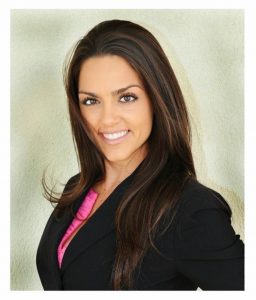
Workshop fee includes workshop tuition, food, and lodging for the 5 workshop days. Participants are responsible for their own travel to Belize.
Accommodations and Food
Lodging will be allocated on a first come, first serve basis. The first 12 participants to register will stay in double rooms with 2 people per room at the Bamboo Beach Resort in Copper Bank, at a 5 minute walking distance from the build site. The next participants will have 3 options. First is to stay with local host families in the village of Copper Bank. If you are interested in meeting the local people, this is a good option for you. Second, you are welcome to pitch tent at the Bamboo Beach Resort. This is where the classroom, recreational, and dining activities take place. Third, you can stay at the Copper Bank Inn, which is a 10 minute walk from both the Resort and the build site.
We will have local families from Copper Bank cook local Belizian food for the group as part of the experience.
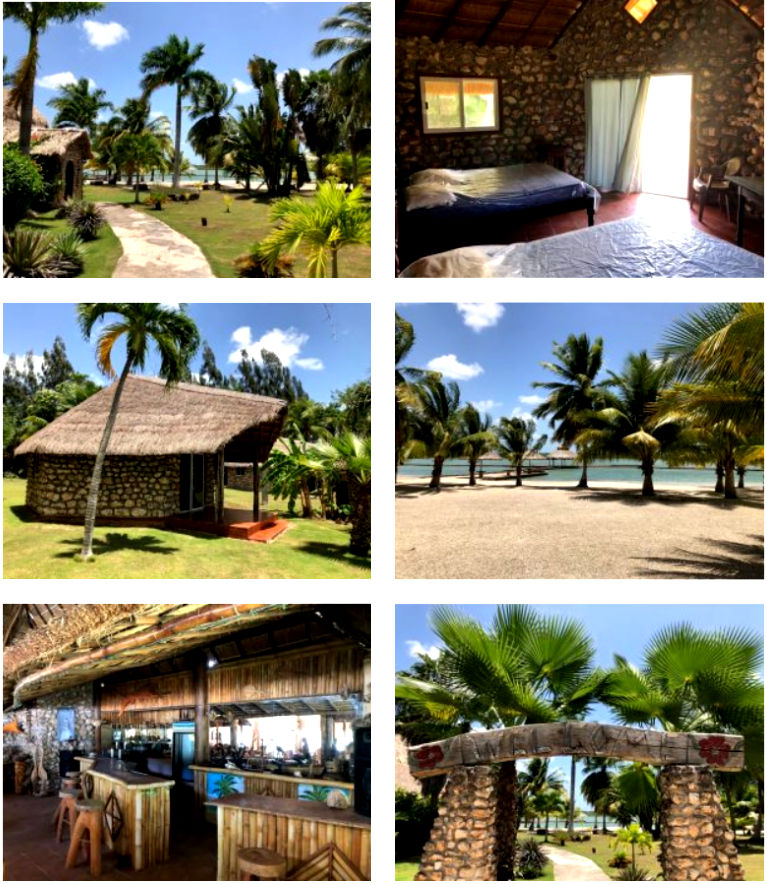
Transportation
Participants will be picked up from the Belize International Airport at 6 PM the eveving before the the workshop. Please plan on arriving some time before 6 PM, or you may meet us directly at the Bamboo Beach Resort in Copper Bank. We will drop people off at the airport the day after – on the 27th – leaving in the morning.
What to Pack
Belize is hot all year – so bring summer clothing and sun tan lotion. We can make recommendations of places to visit after the workshop if you would like to take advantage of a holiday getaway. There are beautiful beaches (Belize has the second largest barrier reef in the world), snorkeling, scuba diving, jungles, ancient temples, caves, and much more.
The registration options are:
- Early Bird Registration – $725 – Early Bird Registration until 11:59 PM CST USA time on October 15, 2019.
- Regular Registration – $875 After October 15, 2019.
Sponsor another participant or Donate to OSE: We are a nonprofit organization with 501(c)3 status, and you can make tax-deductible contributions to us. You can fund attendance of someone who is on the waiting list for financial assistance. We receive low-income assistance requests for all of our workshops. Sponsor by paying the quantity on the order form below. Please email us at info@opensourceecology.org that you are sponsoring someone else. We can send you a tax deduction receipt. You can also donate via BitCoin:

Bitcoin Address: ”’166yC48RakrZdtsBj36vY9q29CpzknHbxY”’
Payment Options: PayPal, Check, eCheck Bitcoin, Money Order, or Wire Transfer
To register, we use Eventzilla – which accepts PayPal or eCheck options. Using the eCheck option (bank routing + account number) avoids the 3% PayPal fee. To avoid fees, you can send a check to Open Source Ecology, 909 SW Willow Rd, Maysville, MO 64469. We can also accept Bitcoin and and wire transfers. Email us at info at opensourceecology.org for additional instructions.
Register Here:
All sales are final, as we are making significant material purchases and incurring other expenses in preparation for this workshop. In case of the unlikely events such as hurricanes or civil unrest, we plan to postpone the event, as all the preparation will have been made well in advance. .
Are prior building skills required? No, this workshop is intended for everyone, including beginners. We will teach the necessary skills. There is a wide range of skill sets that can be used during the workshop. If a person has significant skills, they may take on more difficult build tasks, while novices can take easier tasks. Participants who have skills are encouraged to teach others as well, as we will be working on builds collaboratively.
How is it possible to work effectively as a team if there are many people participating? We use modular design, which allows us to break down a complex build into many parts. This way, a large group can coordinate effort by working on different modules, which can then be assembled readily into the final build. We focus specifically on such modular design in order to allow for effective, productive, and enjoyable group builds.
What if people make mistakes and mess up the builds? We encourage people to make mistakes – as that is a way to learn. Because we focus on modular design and design-for-disassembly – mistakes can typically be corrected readily by loosening fasteners, or in the worst case replacing modular parts.
Do you expect to finish the house build in only 5 days? We expect to finish – so please come with a focus on doing this. The amount of effort it takes depends on how well people work together – so bring a mindset of cooperation and openness to learn. Part of the experience is how to work effectively as a team on design that is bigger than any single person can do in the available time. We expect to have both average and superstar participants – and we may see favorable surprises when the team works together. We encourage that everyone adopt a super-cooperator mindset during the workshop – as any of the builds are more than a single person can do alone. As a backup plan, we intend to hire local people in case the build is lagging. It is important for us to finish so everyone has a deeper sense of satisfaction.
I want to go snorkeling and scuba diving. How do I go about that? Most of the diving/snorkeling in Belize is done off the coast of two islands. Either Caye Caulker or Ambergris Caye (also known as San Pedro) and both islands can be reached by flights from the main Belize airport or by boat from Belize City (25 minute drive from the main airport). We recommend arriving at least two days before the workshop for anyone that wants to spend time on the islands to dive/snorkel/beach or to head there after the workshop. From the islands to get to the workshop anyone could take a boat (called the Thunderbolt and a two hour trip) or a flight (19 minutes) from San Pedro to Corozal. From Corozal someone would have to pick them up to bring them 14 miles to Copper Bank. Or taxis are available but expensive. for flights in Belize: – https://www.tropicair.com/, https://www.mayaislandair.com/ and the boat – https://corozal.bz/137 and the dive crew we usually scuba with when in San Pedro – https://ramons.com/scuba-diving/, but you can see a diving guide here.
How would I rent a car in Belize?We have rented cars from Crystal Auto Rental before – which is a local company – but there are also the major rental agencies in Belize so there are several options for vehicle rental. We recommend anyone rent a jeep or other type of SUV or pickup truck as the roads around Copper Bank are not paved. Gas/diesel is over $5 a gallon in Belize and the cost of a rental SUV should be around $80 to $100 a day including insurance but it is possible to get better deals.
Do I need any vaccines or visas? No visas are required for British or USA citizens. See the full list of other countries here. No immunizations/vaccines are required that for US Citizens that we are aware of. Here are the recommendations from the CDC. You can contact Scott Mader – OSE Collaborator from Belize – on Whatsapp at +1.310.484.4550 for any further information.
For people staying in the double rooms at Bamboo Beach Resort – does that mean one person per double room – or 2 people sharing a room? It is 2 people sharing a room.
Have questions? Drop us an email: info at opensourceecology dot org

Comments are closed, but trackbacks and pingbacks are open.